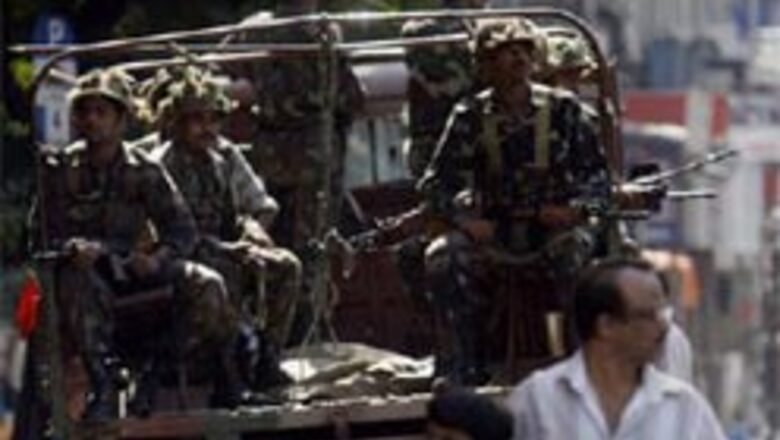
views
Mumbai: A sudden cracking sound on the street in Mumbai on Friday sent people diving to the ground for cover or scurrying behind cars and other barriers.
Policemen cocked their guns, took position and scoured the rooftops of nearby buildings for attackers. There were none.
No one could say what the sound was but it was in an area far from locations where commandos were trying to flush out suspected Islamist terrorists. But fear was palpable after a series of attacks in the city that killed at least 125 people and wounded almost 300.
"When you have a terrorist shooting down people in stations and on roads, how can anyone feel safe any more?" asked Pankaj Angre, a shopkeeper, as many others on the street nodded in agreement.
"This attack is different because it's not a car bomb or a fixed target. This time people have been attacked where they are most vulnerable -- on roads and at railway stations. There is an atmosphere of fear, anger and suspicion. It's like living in a war zone where no one cares."
The city of almost 18 million prides itself as living on the edge.
It's at the vanguard of India's emerging economic prowess and the location of its Bollywood film industry, but it is also home to organised crime syndicates and abject poverty.
It has been the target of terrorist attacks before, including a series of bomb blasts in 1993 that killed at least 260 people and wounded hundreds more at the stock exchange and several other landmarks.
Just two years ago, more than 180 people died when terrorists set off bombs on commuter trains used by millions of people every day.
But Mumbai recovered quickly from those attacks.
"Uncanny knack for normalcy"
On Friday, streets were deserted across much of downtown southern Mumbai.
PAGE_BREAK
Shops were closed and attendance was low in offices. But hundreds were clustered around the locations where the commandos were engaged in action, held back by police.
Elsewhere the city appeared to be functioning as usual. Trains on the city's rail network, the lifeblood of the metropolis, were running on time.
"This uncanny knack for normalcy springs from the fact that this is a financial centre," said Prahlad Kakkar, an advertisement guru and a prominent Mumbai resident.
"But there is boiling anger in the people. They are helpless and scared like never before because of the nature of the attack. The fear has come home, that it can be me next."
Others said the normalcy sprang from the need for the city's vast number of poor to continue their daily grind.
"It's more about momentum of life. Momentum of survival," said Rahul Bose, a prominent Bollywood actor.
"But this is the last straw. Now it looks like people can stroll the shores with bags full of bombs and grenades and the police can't do a thing. "If politicians can't build flyovers, provide water, drainage, health care -- (that) doesn't matter," said Bose.
"But at least someone please stop these terrorists from killing in such a brazen manner and with such regularity."




















Comments
0 comment